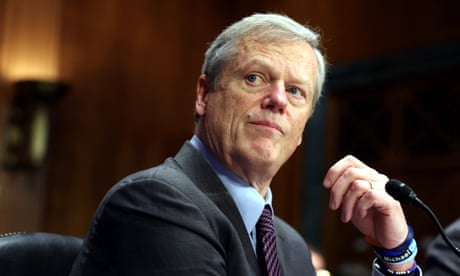There's also a football game, but here are some other, related markets (gambling, advertising, deal making...).
Gambling:
WSJ: Watching the Super Bowl? Bettor Beware. It’s easier than ever for the average fan to bet on sports, even mid-game. But when it comes to winning, the odds are stacked. by Danny Funt
"Thanks to the profusion of online betting, sportsbooks are encouraging customers to bet during games—a category that is “growing exponentially,” Mr. Scott said. Chris Grove, partner emeritus at Eilers & Krejcik, said in the near future, in-game betting should account for the “overwhelming majority” of U.S. sportsbook revenue.
"Roughly half of bets on NFL games this season were placed after the opening kickoff. Customers can wager on lines that move with every play, as well as on short-term “prop” bets like, “Will this possession end in a touchdown?”
...
"An even bigger source of growth for sportsbooks has been parlays, in which bettors string together multiple bets for the chance at a larger payout, but lose if any of the components fails to transpire. Bettors can now place same-game parlays, bundling wagers on, say, the winning team, the total points scored and a quarterback’s passing yards. (Naturally, sportsbooks offer in-game same-game parlays, too.)
"FanDuel, which controls about half of the national online betting market, according to Eilers & Krejcik, leads the industry due in part to its success capitalizing on parlays. Last October in Illinois, for example, seven out of every 10 bets placed at FanDuel was a parlay, according to data published by the state’s gaming board. FanDuel made about $29.60 for every $100 bet on parlays, compared with $4.80 for every $100 in non-parlay bets."
------------
Record 50 Million Americans to Wager $16B on Super Bowl LVII Press Release
"A record 50.4 million American adults (20%) are expected to bet on Super Bowl LVII, a 61 percent increase from the record set in 2022, according to a new American Gaming Association (AGA) survey. Bettors plan to wager an estimated $16 billion on this year’s championship game, more than double last year’s estimates.
"With the expansion of legal sports betting, traditional Super Bowl wagers are expected to pass casual wagers for the first time ever:
"30 million American adults plan to place a traditional sports wager online, at a retail sportsbook or with a bookie, up 66 percent from 2022.
"28 million plan to bet casually with friends or as part of a pool or squares contest, up 50 percent from 2022."
********
Advertising:
The 2023 Super Bowl Ads Will Feature Booze, Betting and Jesus. Alcohol is an open field after Anheuser-Busch InBev gave up category exclusivity, while cryptocurrency is set to be a no-show. By Megan Graham
"The Super Bowl still regularly draws an audience of around 100 million people, making it TV’s biggest event of the year and advertising’s biggest night.
"Fox this week said it has sold out of advertising for its Super Bowl broadcast, with some 30-second slots selling for more than $7 million"
----------------
The Backstory to the Jesus Ad Coming to the Super Bowl. The political underpinnings of this campaign are hiding beneath the surface. BY MOLLY OLMSTEAD
"The campaign is being run by something called The Signatry, a Kansas-based Christian foundation that exists, essentially, to connect donors (and their financial advisors) with causes in order to “inspire and facilitate revolutionary, biblical generosity.” According to Ministry Watch, an evangelical watchdog organization that scrutinizes the finances of Christian charities, in 2018, the foundation reported more than $1 billion in contributions. "
*******
Dealmaking by DEALBOOK NEWSLETTER:
"For most of America, the Super Bowl starts on Sunday evening. But for the deal makers who use the event as a backdrop for doing business, the real game starts days before kickoff.
"It’s not uncommon to attend exclusive dinners and parties during the week, and then jet out of town before the opening kickoff. “Once the game starts, it’s just a game,” said George Foster, a professor at Stanford Business School who directs the school’s sports management initiative. “It’s much more effective to get extended time fairly focused on the business relationship on Thursday, Friday and Saturday.”
...
Sex work (same link as Dealmaking):
"In December, Gov. Doug Ducey of Arizona, like many government officials preparing to host the Super Bowl before him, announced a statewide campaign to raise awareness of human trafficking, including sex trafficking, ahead of the big game. Though the claim that increased sex trafficking and sex work occurs during major sporting events like the Super Bowl has been debunked over and over and over and over and over again, anti-human trafficking campaigns often target these events.
"Campaigns by cities have been criticized by advocates for sex workers, who say such efforts often rely on law enforcement “raids.” More patrolling can lead to more arrests of sex workers who are not being trafficked, they say, as well as the possibility that victims of trafficking will be arrested.
"It’s also unclear whether campaigns to raise awareness about sex trafficking are effective at addressing it. “If we want to protect people who are being trafficked, we need to protect sex workers because they are the most vulnerable for that happening to them next,” Kristen DiAngelo, executive director of the Sex Workers Outreach Project in Sacramento, told The Washington Post ahead of last year’s Super Bowl."




